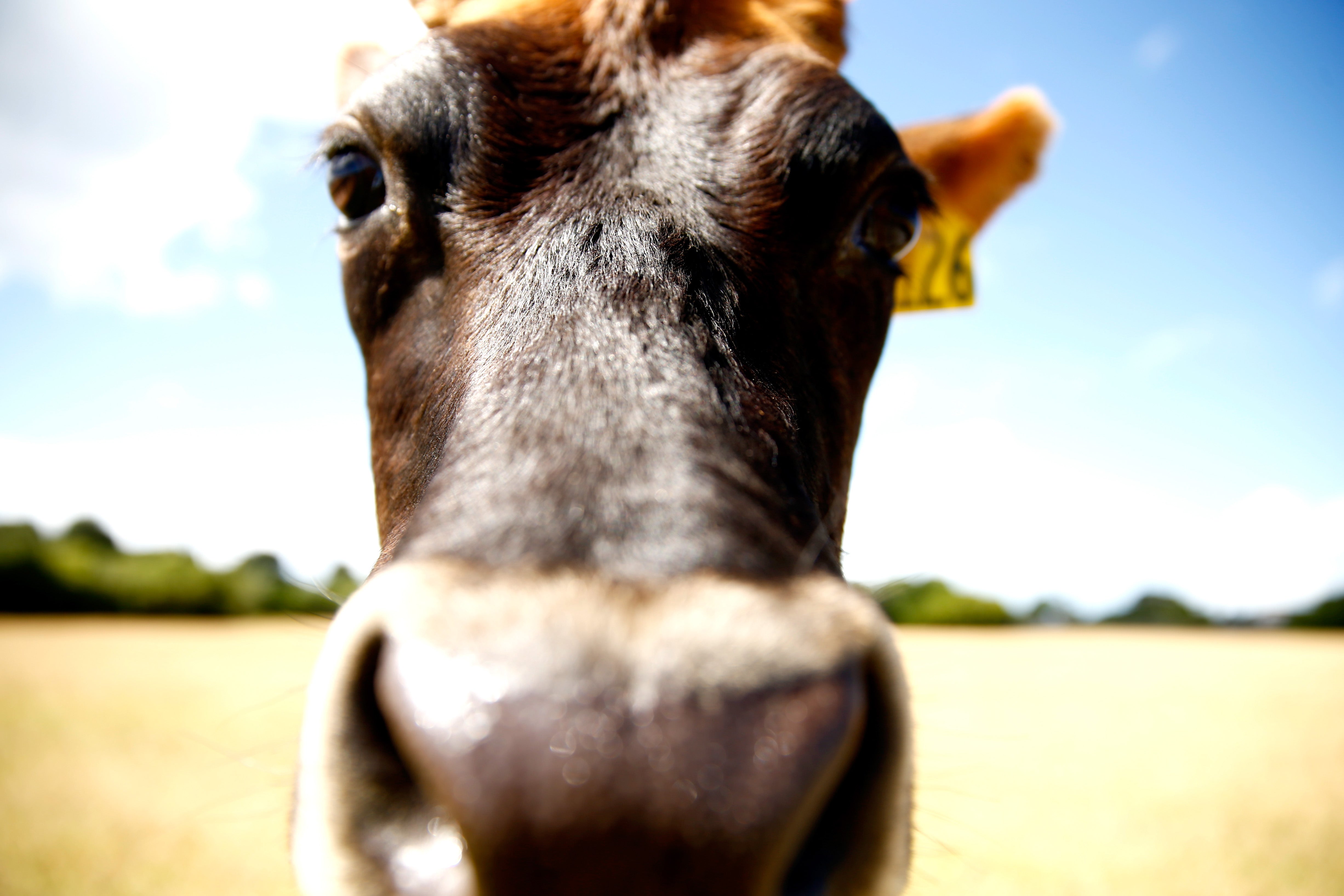Every year, cows kill more people than sharks. And yet nobody ever makes a horror movie about them, and there's no Cow Week. These deadly beasts have managed to stay completely under the radar... until now. Find out just why cows are so deadly.
Deliberate Attacks on People
In the United States, the CDC estimates that about twenty-two people are killed by cows each year, and of those cow attacks, seventy-five percent were known to be deliberate attacks. One third of the killings were committed by cows that had previously displayed aggressive behavior.
People know that bulls are dangerous, and it's true. When animal behaviorists analyzed 21 cases that occurred across a four-state area, they found that bulls were responsible for ten of the deaths. Cows were responsible for six deaths. What's really chilling is that, in five cases, people were killed by multiple cows in group attacks.
Group attacks can be surprisingly well-coordinated. When they're feeling defensive, cows will gather in a circle, all facing outwards, lowering their heads and stamping the ground. When they're feeling offensive, certain cows lead the charge. One man, who was attacked while walking his dog along a path, reported, "I fell forwards and rolled into a ball and every time I tried to get up they jumped on me; they were rolling me along the hill with their legs trying to get me to open up. There were seven or eight cows. There were a couple leaders."
Even the people who survive cow attacks rarely brush them off. In 2014, a mountaineer and cyclist was leading a race through a pasture when a group of cows attacked him. He received fractures on eight ribs, a shoulder, and a part of his spine. A woman, attacked the same year, got six broken ribs and a punctured lung. Cows mostly trample and kick people, but if they get their head beneath their victim they can literally throw a person into the air and let them fall back down on the ground.
Humans may not be able to trust cattle, but non-humans have been known to employ cows as security. Sheep raised with cows will run into the center of the cow-herd when faced with a threat, knowing that if things get hairy, the cows will take care of business.
Battle Cows
Because they move slowly and require a lot of grass and water, cows are impractical standard weapons of war. That hasn't stopped people from using them as improvised weapons, especially if the other side was dumb enough to bring them along. A herd of cows' potential to do damage is even more infamous. Anyone with even a passing familiarity with old Westerns knows what's going to happen when someone shouts, "Stampede!"
George Armstrong Custer wrote a memoir in which he described Native Americans inducing cattle to stampede as either a distraction tactic or an outright attack. No matter what the purpose, soldiers knew that they had to take the cattle in hand before doing anything else. Another book, tellingly entitled The Uncivilized Races of Men in All Countries of the World and written in 1878, recounts the conflict between the Boers and the Zulu. The author, Reverend John George Wood writes, "The Zulus have sometimes outwitted the Boers, by introducing inside of a camp at night, scouts, who speared the cattle frightening them into a stampede." Both books insist this is not the right way to fight a war, but admit the tactic is a good one. A stampede of cows is a scary thing.
Kamikaze Cows
Cows don't have to intend anyone's death in order to kill them. Any fifteen hundred pound animal can do a lot of damage, which is why some motorists, driving beside cliffs in rural country, have been amused by signs warning them about falling cows. It wasn't so much of a joke when, in Switzerland, over the course of a few weeks, twenty-eight cows either fell or jumped over a cliff. A man in Brazil was killed by a cow that fell on his car. And, in Indiana, drivers along a highway were startled when a trailer on an overpass tipped over and rained cows on them. A bull survived the fall and ran amok on the highway, attacking a tow-truck driver.
The Summer of the Cow
Many people think that the book Jaws (which became an iconic movie) was based on the events that occurred in July of 1916. Over twelve days, five people along the coast of New Jersey were attacked by sharks. Four of them died. It was called "the summer of the shark."
People would be embarrassed to call summer of 2009 "the summer of the cow," but in eight weeks, in Britain alone, cows racked up the same number of casualties. (That was also the summer that cows started jumping off the cliff in Switzerland.)
Two of the victims were walking their dogs — and dogs are often a factor in cow attacks. Cows become agitated by the quick-moving dogs and attack the dog. When the owner steps in to try to save their dog, the cows turn on them. Sometimes, however, factors beyond anyone's control can instigate aggressive behavior. The fourth casualty, a farmer, was probably trampled after a passing fire engine startled his cows.
After the multiple deaths, the cows turned on a politician. David Blunkett, a British Member of Parliament, was attacked by cows as he walked his dog. He escaped with only a black eye and a cracked rib, but it started people talking about safety measures around cows. The usual commonsense precautions figured highly on most how-to lists. Walkers were to give cows a wide berth and keep control of their dogs.
Then things got weird. One list of tips includes, "Remember, you are in charge. You need to know you're in control for the cows to know you're in control."
How, exactly, are we supposed to do that?
Warning: They've Got a Taste For Blood
It's possible that all the trouble we have with cows goes back to one spectacularly ill-advised news story. In 1931 Time magazine published an article about the positive effects of feeding a cow meat. The article starts off by saying, "Dairymen on the Didsbury Jersey farms at Didsbury, Alberta, last week argued that it was a meat diet which caused one of their cows, Waikiki Xenia's Fanny, to produce almost pure cream." Who could resist the potential for profit? Perhaps farmers tried it, and turned their cows into blood thirsty killers.
Or perhaps it was something that was always natural to them. A cow in India made headlines a few years ago for eating about fifty chicks, one of them on camera. In an article about meat-eating deer, one io9 reader with nerves of steel, reported to us that cows occasionally also eat barn kittens.





No comments:
Post a Comment